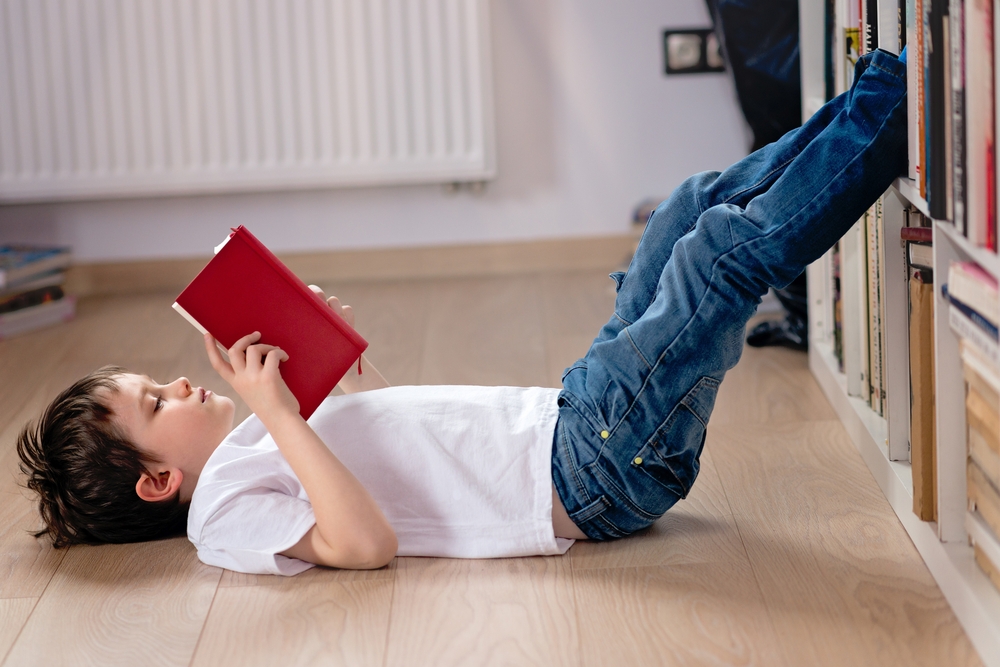
Advice
What About Homeschool Socialisation

Homeschooled children and the apparent ‘lack’ of socialisation is one of the biggest myths in home-based education. Many wonder how families are able to cultivate interpersonal skills and resilience in their children when they aren’t in classroom-based schooling.
The social norm is that classroom education amongst their peers is the only way to effectively engage your children socially. There is no foundation to this because homeschooled children are more socially engaged than you expect. They are educated in a far less “sheltered environment” than is believed, especially by the media and develop social skills just as effectively as their peers.
Breaking the Social Norms
Families that educate from home are asked about socialisation all the time. There is a lot of misinformation about this form of education, and children aren’t stuck at home 24/7, as some think.
With over 50,000 children currently homeschooled in Australia, it’s surprising that socialisation continues to be a widely debated topic. While families choose education at home for their own reasons, it doesn’t mean that their children are any less empowered or socialised than other kids.
In this article, we will look at how well homeschooling families socialise their children and how well they adapt to social settings.
Understanding Socialisation
If you look closely at the word “socialisation” and what it means, you will understand that it’s the process where a child gains the social skills needed to negotiate different social settings and maintain relationships in various contexts.
When you look at it this way, it’s rare to find a homeschooled graduate who has trouble being social. While much of their schooling is at “home base,” families extend their children’s education and learning beyond the home by using community resources.
On average, homeschooling families spend more time participating in their community than their traditional classroom-based counterparts.
Ways Homeschooling Elevates Social Skills
When families choose to educate from home, their children benefit academically and often have confident social skills because they have been developing in a supportive environment. Children create healthier relationships with less peer pressure and bullying and often have the opportunity to meet a diverse community of people.
There are many ways homeschooled children are socialised, which often means being a part of an active homeschooling community. From community events to regular “play dates” and attending art and dance classes, there’s no lack of interaction with others their age.
When using the flexible curriculum that we offer at Euka, there are plenty of opportunities for families to support their children’s social development through the following experiences:
Engage With Other Homeschool Groups
It’s not uncommon for homeschool families to meet together to engage their children in socialisation. Whether meeting at home or in a public setting, getting to know people with the same education values benefits parents and children.
Some families also choose to educate their children in a co-op. Families meet a few times a week at a designated location while working toward similar goals and providing enriched academic classes. These families are educating their children and providing them with the necessary skills to be fully functioning socialised members of society.
If meeting in person isn’t possible, there are plenty of opportunities to engage with other family groups online who educate at home.
Enrol in Team Sports
It’s common for families to enrol their children in team sports where they socialise and enjoy physical activity within their age group. In doing so, they learn to work as a team, listen to their peers, and enjoy spending time with others of similar interests.
There are a range of leagues outside of the school-based system where children can engage in their chosen sport.
Attend Scouts or Guides
Whether your child is homeschooled or not, joining Scouts, Guides, or other community-based groups is an excellent way for them to meet new people and make friends. They learn new skills and how to become leaders.
Along with those lifelong skills, children also learn to be active citizens within their community. Serving others this way teaches them to be part of the local district and treat others respectfully.
Part of a Church or Other Faith-Based Institution
Some homeschool families are part of active ministry in a church, so their children are engaged in positive relationships with people from all walks of life. They are likely meeting with other church families throughout the week, not just on days of worship.
Attend Library Activities
Local libraries offer a host of activities after school and during the holidays. Having a library card, visiting to use their facilities, and borrowing books see active involvement with other members of society.
Excursions
With the flexible nature of home education, it’s relatively easy to slot in field trips to local historical places, see the theatre, attend cooking classes, and much more. Field trips are not only an opportunity to learn and engage in cultural enrichment, but they also provide character-building opportunities.
Positive Socialisation With Adults & Families
Homeschooled children, in general, have improved relationships with their parents and other adults. It leads to a different socialisation where there’s no pressure to “fit in” or conform to others’ ideals.
With more interactions with their family and other adults, they have greater stability, their relational skills are sharper, and they often have greater self-confidence.
Choose a Flexible Curriculum for Greater Social Opportunities
Despite the beliefs of media and other individuals, homeschooling doesn’t mean your child with never interact with other children. They’re not being deprived of necessary socialisation developmental skills and are usually more involved in the community than their classroom-based peers.
It’s reassuring to know that by choosing to educate your child from home, they are delivered opportunities to engage with others through sports, community theatre, homeschooling co-ops and more.
With a bit of creativity and the use of a flexible curriculum like the one we offer at Euka, your home-educated children will continue to thrive and benefit from the experience of unique opportunities.
If you think we can help your family with their learning experience, contact us and let’s get started.

You may also like

Welcome to the first series of Euka Stories. The purpose of this series is to give you a glimpse into the everyday lives of homeschooling families by shedding light on their challenges, triumphs, and trials. Our first story is about one of our family’s – The Rogers, who are travelling around Australia with their 2 […]
Welcome to the first series of Euka Stories. The purpose of this series is to give you a glimpse into the everyday lives of homeschooling families by shedding light on their challenges, triumphs, and trials. Our first story is about one of our family’s – The Rogers, who are travelling around Australia with their 2 […]

More and more parents are finding themselves facing the task of homeschooling without the luxury of time and research. This can occur due to various circumstances such as a sudden change in health diagnosis, a bullying incident, a family’s decision to move, or external factors that disrupt regular school attendance. Accidental homeschooling often involves parents […]
More and more parents are finding themselves facing the task of homeschooling without the luxury of time and research. This can occur due to various circumstances such as a sudden change in health diagnosis, a bullying incident, a family’s decision to move, or external factors that disrupt regular school attendance. Accidental homeschooling often involves parents […]

It may sound unnecessary to help your child find their voice when they are constantly demanding and outspoken, however helping a child find their voice means more than letting them say whatever they like, whenever they like. Finding their voice allows them to communicate effectively and appropriately. It is supporting and empowering them to develop […]
It may sound unnecessary to help your child find their voice when they are constantly demanding and outspoken, however helping a child find their voice means more than letting them say whatever they like, whenever they like. Finding their voice allows them to communicate effectively and appropriately. It is supporting and empowering them to develop […]





